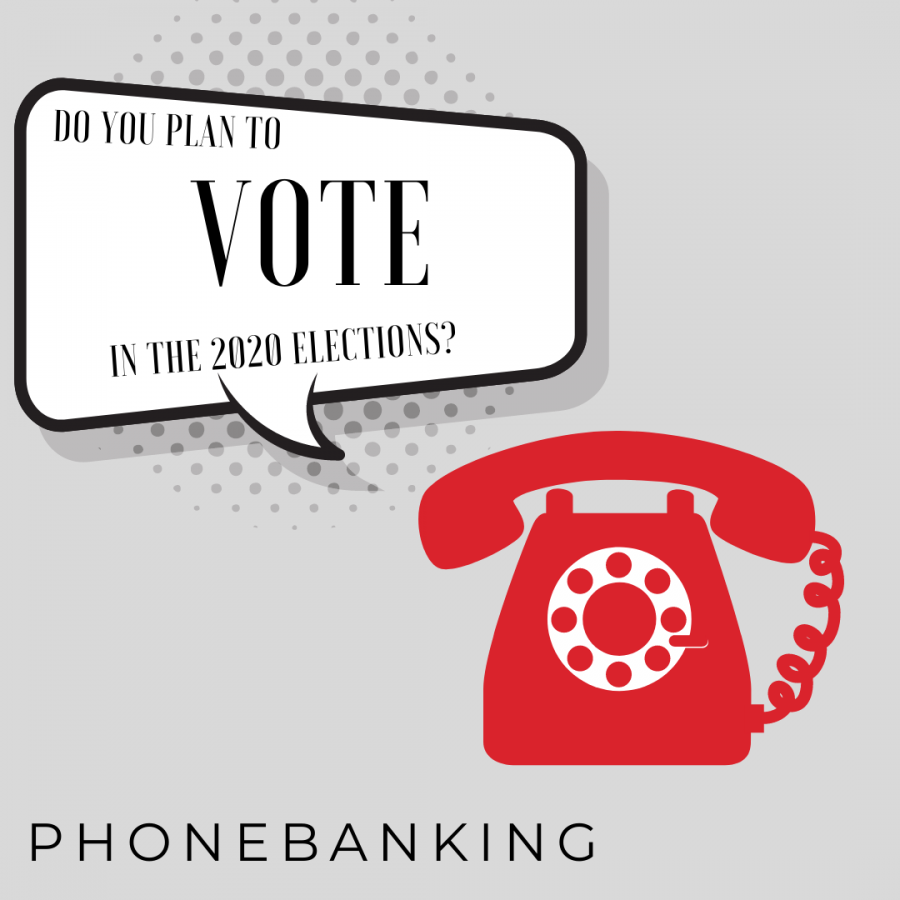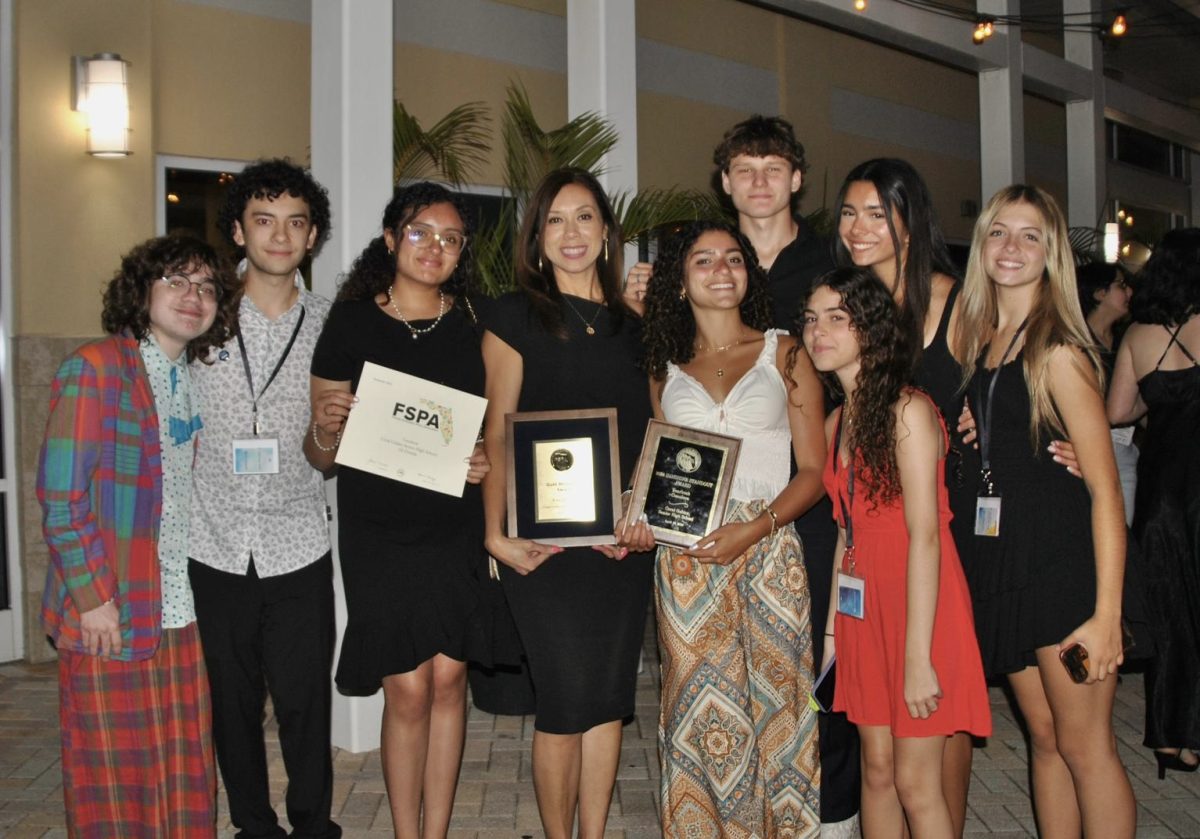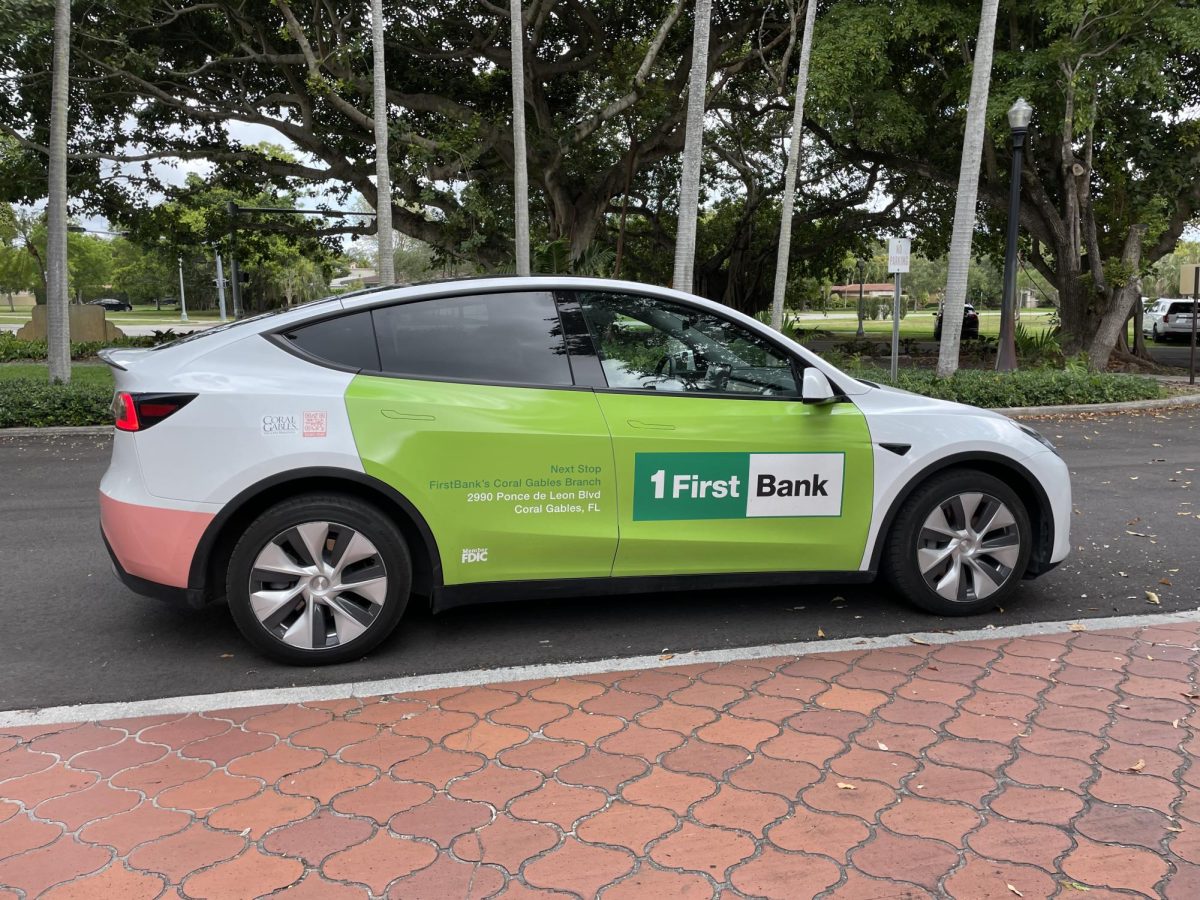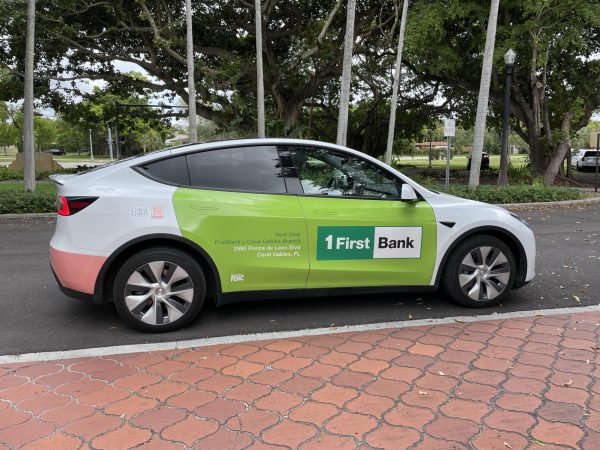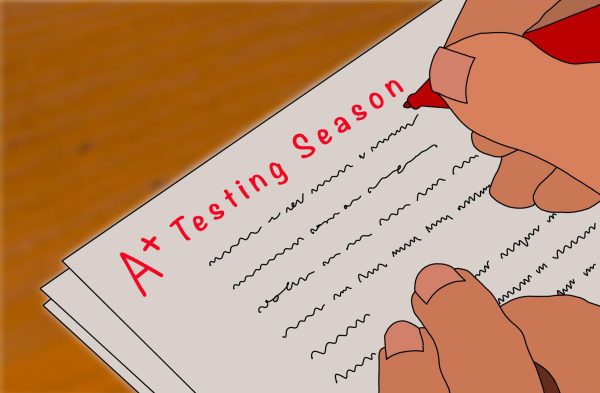Phone banking: Essential, Yet Misunderstood
Volunteers calling to ask if you are planning on voting are phone banking to gauge voter turnout.
Oct 27, 2020
As election day approaches, phone calls and messages from volunteers have been rampant. Whether or not you choose to listen or not, phone banking is an extremely integral part of shaping the elections from the local to national level. Phone banking is a political campaign tactic to encourage people to vote, ensure they have a plan to vote and inform them on a certain political candidate. Calls asking about who you are voting for or who you plan to vote for are primarily from volunteers of that political campaign. Even though phone banking is a crucial part of political campaigning, the people being called tend to misunderstand the good intentions and motives of civic engagement that volunteers have.
Due to the pandemic, canvassing is not as prevalent this year, thus phone banking has taken its place. While canvassing involves going door to door, phone banking better suits our new online world because it is entirely through technology but still gets the same message across. Phone banking actually increases voter turnout 2-3%, which can sway the election in favor of one candidate or another. Although most people assume that the callers are telemarketers or a scam, they are actually volunteers for a particular candidate or organization who take time out of their days to do this. These volunteers range from high school and college students volunteering for their local Senate or House Representative nominee to senior citizens staying politically active and doing what they can from the comfort of their home to stay civically engaged.
Unfortunately, when many adults receive so many calls asking about the elections, they tend to hang up because it seems too stressful. When asked if they plan on voting, some people get frustrated with the question itself and hang up. Not everyone is going to be willing to talk about the elections and the majority of people do not even want to think about it, especially those who are not voting. In these cases, emphasizing the importance of the election will only stress the person out more because they feel an immense pressure to choose the “right candidate” or they feel insignificant in the grand scheme of the electoral college.
Another reason why people might not want to vote is because it may seem complicated due to the pandemic although this is not exactly the case. Mail-in ballots are perfect for this because they require no human contact. They can also be dropped off at an early voting location to be counted faster. Early voting is open in the week or weeks prior to the election and voting early removes the anxiety and crowds of election day. By reaching out to the local community through the phone, many potential voters become educated on how they can make their voice be heard with some following through using this vital information.
We are currently in one of the most controversial elections ever. It is safe to say that some people are fed up with this election and how much division it has created when they curse at you or hang up the phone,
— junior Marta Rodriguez
Everyone is stressed for this election, but this is no excuse for rudeness on the phone. In some cases, there are those who, rather than just hanging up, attack the person directly on the phone. More often than not, it is appreciated when someone says “thank you for the work you are doing” or “I’m sorry but I have to hang up” instead of getting angry. These volunteers are taking time out of their day to ensure that you vote. Since this is a time consuming activity, it takes a toll both physically and mentally when the callers have people yelling at them on the other end of the phone. Many arguments seem to circulate across the phone banking realm having to do with the political climate surrounding voting, from the “fraudulent” mail-in ballots to so-called poll watchers. Nonetheless, some people are thrilled to discuss the election and absorb all the knowledge they can. Overall, regardless of the outcomes of each phone call, volunteers are there to help everyone willing to listen and have a “game plan” for voting and candidates.
“Before the elections, everyone gets stressed to vote. Especially this year, people feel more pressured to make the right decision and become educated on the candidates,” junior Andrea Delgado said.
If you receive a call from someone asking who you are voting for or if you are voting, please be courteous even if you don’t want to talk about the elections. It is a stressful election but it is stressful for everyone. This is also a time to become educated on the issues and topics at hand instead of getting defensive on the phone with people who simply want to get out the vote. We are all in this together and must do our part to ensure a fair election by voting.


